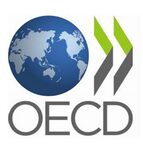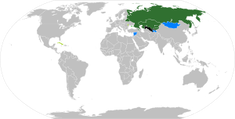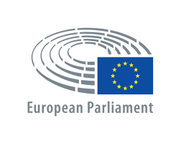|
Belgium, Estonia, the Netherlands, and Qatar have deposited new notifications under the Multilateral Convention to Implement Tax Treaty Related Measures to Prevent Base Erosion and Profit Shifting (BEPS MLI) subsequent to their ratification.
Estonia has notified, in relation to Article 35(7)(a)(i) of the BEPS MLI, the completion of its internal procedures for the entry into effect of the provisions of the BEPS MLI with respect to its treaties with Austria, Cyprus, Finland, Latvia, Poland, Slovak Republic and Ukraine in accordance with Article 35(7)(b) of the BEPS MLI; and the Netherlands and Qatar have notified additional bilateral treaties to which the BEPS MLI can apply and made additional notifications with respect to provisions of the BEPS MLI. Belgium made an additional notification with respect to its treaty with the Netherlands. The BEPS MLI entered into force for Belgium on October 1, 2019, for Estonia on May 1, 2021, for the Netherlands on July 1, 2019, and for Qatar on April 1, 2020. The new notifications made by those jurisdictions will take effect in accordance with Articles 29 and 35 of the BEPS MLI. The BEPS MLI, which covers over 1700 bilateral tax treaties, underlines the strong commitment of the 96 jurisdictions that have already joined it to prevent the abuse of tax treaties and address BEPS by multinational enterprises. The BEPS MLI has already started to impact the bilateral treaties of 67 jurisdictions that have ratified it. From January 1, 2022, it is expected to impact over 850 treaties concluded among those 67 jurisdictions, with an additional 900 treaties to become modified once the BEPS MLI is ratified by all Signatories. See Announcement Estonia’s adoption of the EU directive on the OECD-led global minimum tax is highly conditional upon the possibility to retain Estonia’s current investor-friendly corporate tax system, Minister of Finance Keit Pentus-Rosimannus has said.
The Minister made the statement at a November 24 meeting with the Director-General for Taxation and Customs Union Mr Gerassimos Thomas to discuss the ongoing international tax reform. “As the European Union talks regarding the directive are about to start, we intend to make sure that the change will impact only the large multinationals with the revenue exceeding EUR 750 million and leave the rest of our existing system untouched. Estonia values fair tax competition and simple efficient tax rules that do not hinder the growth of business. We are keen to maintain our current tax system as it encourages both job creation and innovation. Even now, our revenue from corporate tax is comparable to that of many large countries where the nominal tax rates are much higher.” “We wouldn’t want the EU to open several tax battlefronts at once. It would be reasonable to await the outcome of the one major reform – the global minimum tax – before launching into debates over the next.” See Release On November 22, 2021, the OECD released the latest mutual agreement procedure (MAP) statistics covering 118 jurisdictions and practically all MAP cases worldwide.
The data was released as part of the BEPS Action 14 minimum standard and the wider G20/OECD tax certainty agenda to improve the effectiveness and timeliness of tax-related dispute resolution mechanisms. According to the 2020 MAP Statistics, around 2500 new cases started in 2020, with the top 25 jurisdictions accounting for 95% of them and the remaining cases involving around 40 other jurisdictions. The number of transfer pricing cases started has kept increasing (almost +15%), while the number of other cases has slightly decreased compared to 2019 (-2%). Approximately 5% fewer MAP cases were closed in 2020 than in 2019, which is mainly owing to a decrease for other cases (-12%), while the number of transfer pricing cases closed has increased (+6%). Competent authorities were still able to close a significant number of cases in 2020, because they adapted to the changing landscape and replaced physical meetings with other forms of communication, including digital meetings, and prioritized simpler cases. Nevertheless, MAP inventories have increased in the majority of jurisdictions and this may require additional actions in the coming years. Around 75% of the MAPs concluded in 2020 fully resolved the issue both for transfer pricing and other cases (compared to 85% for transfer pricing cases and 71% for other cases in 2019). Approximately 3% of MAP cases were closed with no agreement compared to 2% in 2019. In addition, the amount of cases withdrawn by taxpayers nearly doubled in 2020 (11% compared to 6% in 2019). On average, MAP cases closed in 2020 took 35 months for transfer pricing cases (31 months in 2019) and approximately 18 months for other cases (22 months in 2019). Some jurisdictions experienced delays, especially for more complex cases, and the COVID-19 crisis affected the quality of their communication with some treaty partners. Also, while it is not possible to estimate the time that will be necessary to close pending cases, the data shows that approximately 15% of the 2020 end inventory relates to cases that have been pending for at least five years. See Statistics Over 100 delegates from 18 Eurasian jurisdictions, as well as participants from business and academia, and international organisations, gathered virtually on November 18-19, 2021, for the 7th Regional Meeting on BEPS for Eurasian Countries.
This meeting offered participants the opportunity to provide their views and input into the work on the development and monitoring of international tax standards under the OECD/G20 Inclusive Framework on BEPS. Updates were provided on the Inclusive Framework’s membership and in particular, on the recent agreement reached by 137 countries and jurisdictions on a two-pillar plan to address the tax challenges of the digitalisation of the economy. Participants had the opportunity to share their experiences, discuss the challenges to overcome and actions required for the effective implementation of the BEPS measures, including on the tax challenges arising from the digitalisation of the economy which participants flagged as a key area of work. The meeting also fostered discussions on the implementation of the substantial activities requirements in relation to preferential tax regimes (BEPS Action 5), country-by-country reports (BEPS Action 13), and on making dispute resolution more effective (BEPS Action 14). See Release Singapore and Cabo Verde have signed a tax treaty.
The treaty clarifies the taxing rights of both countries on all forms of income flows arising from cross-border business activities and minimizes the double taxation of such income. This will lower barriers to cross-border investment and boost trade and economic flows between the two countries. The full text of the treaty is available on the Inland Revenue Authority of Singapore’s website. The treaty will enter into force after ratification by both countries. See Announcement On November 11, 2021, Members of European Parliament (MEPs) gave their final green light to new rules obliging big multinationals to publicly declare the taxes they pay in each EU country, to undermine tax avoidance.
Multinationals and their subsidiaries with annual revenues over EUR 750 million - and which are active in more than one EU country - will now have to publish the amount of tax they pay in each member state. This information will also need to be made available on the internet, using a common template and in a machine-readable format. The directive will enter into force 20 days after publication in the Official Journal. Member states will then have 18 months to transpose the law into their national laws. This means that businesses will need to be complying with the first provisions of the directive by mid-2024. See Announcement On November 5, 2021, Ireland Minister for Finance, Paschal Donohoe, launched a public consultation seeking stakeholder views on the introduction of New Taxation Measures to apply to Outbound Payments.
The Update to Ireland’s Corporation Tax Roadmap, published in January 2021, set out a series of commitments designed to update and enhance Ireland’s corporation tax rules. This consultation delivers on the commitments contained in the Update to Ireland’s Corporation Tax Roadmap as well as delivering on milestones in Ireland’s National Recovery and Resilience Plan. The consultation period will run from 5 November 2021 to 20 December 2021. See Announcement Mauritania has joined international efforts against tax avoidance by joining the OECD/G20 Inclusive Framework on BEPS as its 141st member.
Through its membership, Mauritania committed to addressing the tax challenges arising from the digitalisation of the economy by joining the two-pillar plan to reform the international taxation rules and ensure that multinational enterprises pay a fair share of tax wherever they operate, bringing to 137 the total number of jurisdictions participating in the agreement. Collaborating on an equal footing with all other members of the Inclusive Framework, Mauritania will participate in the implementation of the BEPS package of 15 measures to tackle tax avoidance, improve the coherence of international tax rules and ensure a more transparent tax environment. See Announcement |
Archives
March 2024
|
COMTAX ABC/o Ekonomiforetaget Baehring Dahl AB
Berga Alle 3 25452 Helsingborg Sweden |
CONTACTTel.: +46 46 590 07 70
E-mail: support(@)comtaxit.com |
INFORMATION |
© COPYRIGHT 1985 - 2024 COMTAX AB. ALL RIGHTS RESERVED.








